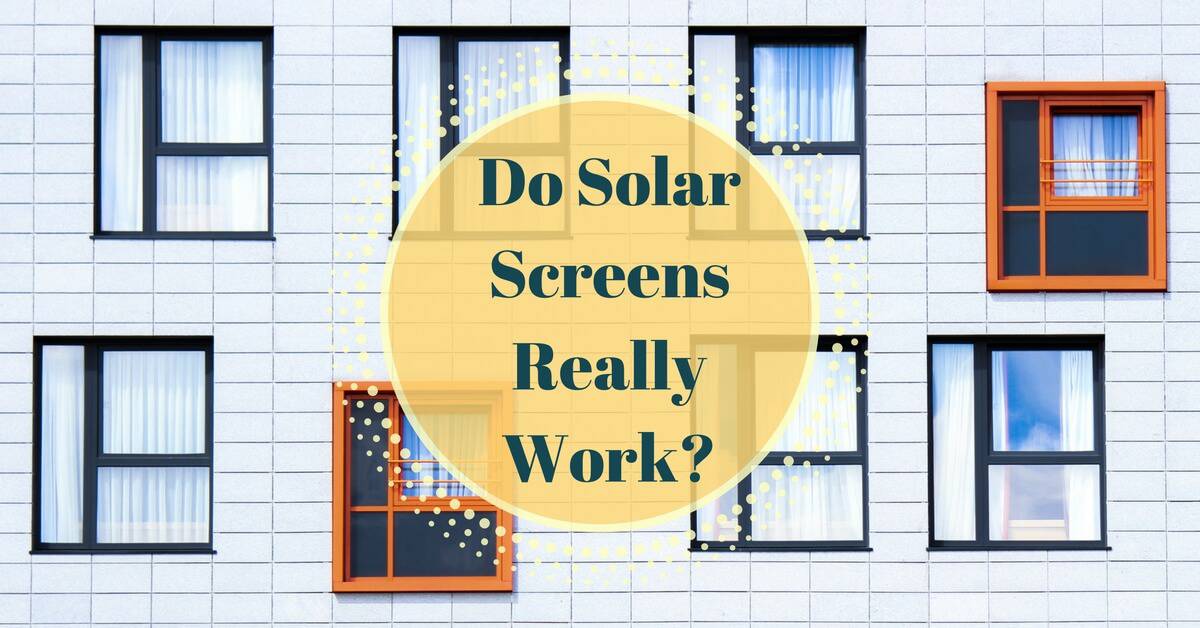- How to Select the Right Color for Sunshades - January 17, 2025
- Fun New Year Events and Activities to Enjoy in Arizona - January 6, 2025
- How Sun Shades Help With Your Allergies - December 27, 2024
If you’re considering adding solar screens to your home, one of your primary concerns might be whether or not these screens will obstruct your view of the beautiful outdoors. It’s a valid question, especially for those who revel in their garden views or the picturesque landscape beyond their windows.
Let’s look at how solar screens work, their impact on visibility, and the balance they offer between protection and preserving your connection with the outdoors.
Understanding Solar Screens
Solar screens are designed to be installed on the outside of windows, acting as a barrier between the sun’s rays and the interior of your home. They are made from a specially designed mesh fabric that serves several purposes: reducing heat transfer, protecting against UV rays, and diminishing glare. The density of the mesh fabric can vary, which influences the level of visibility, sun protection, and airflow.
The key to their functionality lies in the fabric’s ability to block out a significant portion of the sun’s energy before it reaches the window. By doing so, solar screens can reduce interior temperatures, lower energy costs, and protect your furniture from sun damage without the need for heavy drapes or blinds.
Impact on Visibility
The concern that solar screens might block one’s view stems from the assumption that any addition to a window will impede visibility. However, the technology behind solar screen fabrics is far more sophisticated than it might seem. The weave of the fabric is designed to block out the sun’s harmful rays while still allowing for clear visibility from the inside.
Light and Visibility
The truth about solar screens is that they can actually enhance visibility during the day by reducing glare. Glare can make it difficult to see out of untreated windows, especially during peak sun hours. Solar screens mitigate this issue, allowing for a clearer view of the outdoors. The glare reduction can also be beneficial for activities such as watching television or working on a computer near a window, as it diminishes screen reflections and eye strain.
Different Fabric Options
Manufacturers offer solar screens in various fabric densities, measured by the percentage of UV rays they block. A higher density means more sun protection but slightly reduced visibility. For example, a screen with a 90% blockage rate will offer more UV protection but slightly decreased clarity compared to a screen designed to block 70% of UV rays. Homeowners can choose the fabric density that best meets their needs for protection and visibility.
Balancing Protection and View
When you’re choosing your solar screens, you’ll need to consider the balance between protection from the sun and maintaining the quality of your view. Here are key factors that influence this balance:
Sun Exposure
Homes with windows that face directly towards the sun at peak hours will benefit from higher-density solar screens. In these cases, the slight reduction in visibility might be a worthwhile trade-off for the considerable comfort and protection gains.
Aesthetic Preferences
Solar screens are available in a range of colors, which can affect both the look of your home and your view of the outside. Darker screens generally offer clearer visibility than lighter shades, but the choice may depend on your home’s exterior design and personal preference.
Climate Considerations
In areas with extreme heat and sun exposure, like Arizona or Texas, the benefits of solar screens in reducing cooling costs and protecting against UV damage are substantial. The slight loss in clarity might be negligible compared to the comfort and protection offered.
Customer Satisfaction
Homeowners who have installed solar screens often report satisfaction with the balance between protection and views. Many express surprise at how the screens have reduced their energy bills and interior temperatures without significantly darkening their homes or obscuring their views. Customers frequently mention the importance of choosing the right fabric density and color to match their specific needs and preferences.
Professional Consultation
If you’re considering solar screens but are concerned about the impact on your view, contact us for more information. We’ll assess your home’s orientation, sun exposure, and aesthetic preferences to recommend the solar screen options that will best meet your needs. This personalized approach ensures that you don’t have to sacrifice your view for comfort and protection.
Contact Us Today
Modern solar screens are engineered to benefit homeowners by reducing heat and UV exposure while maintaining a great view of the outdoors. Contact us today to learn more about solar screens and explore your options.

